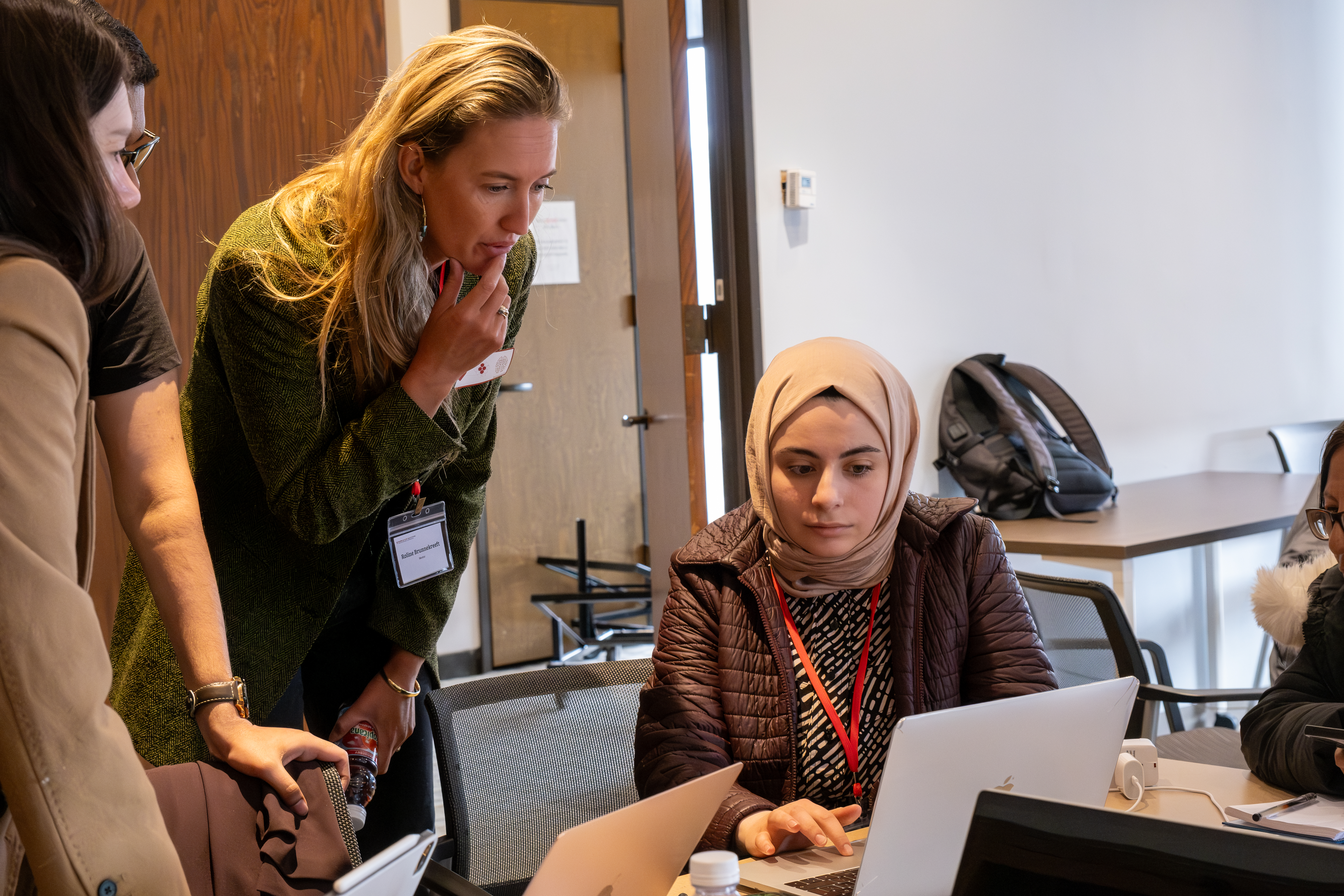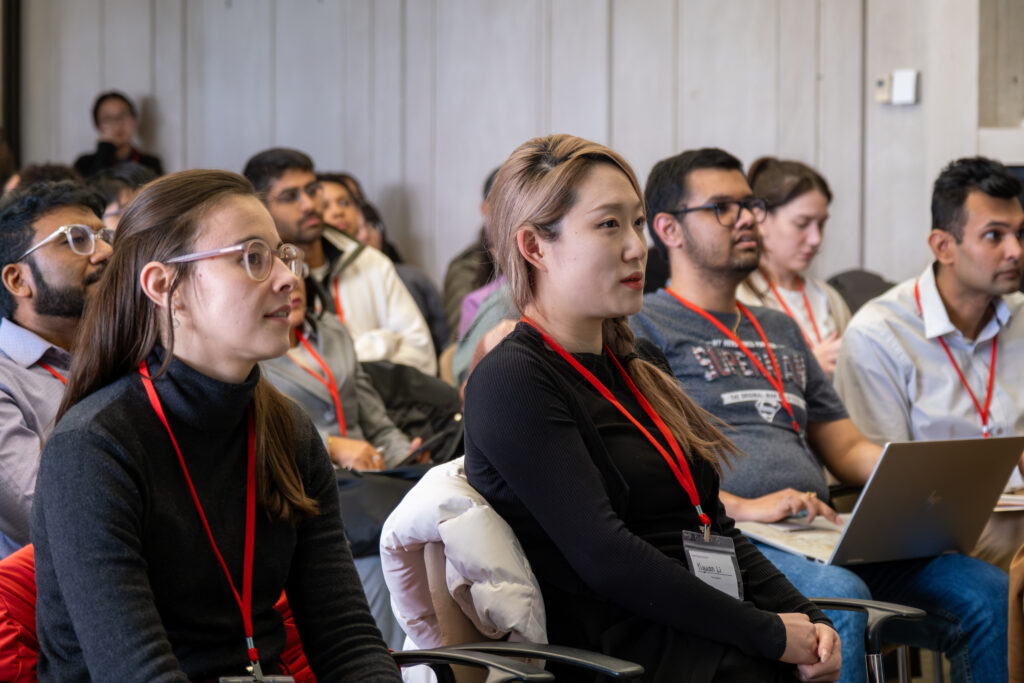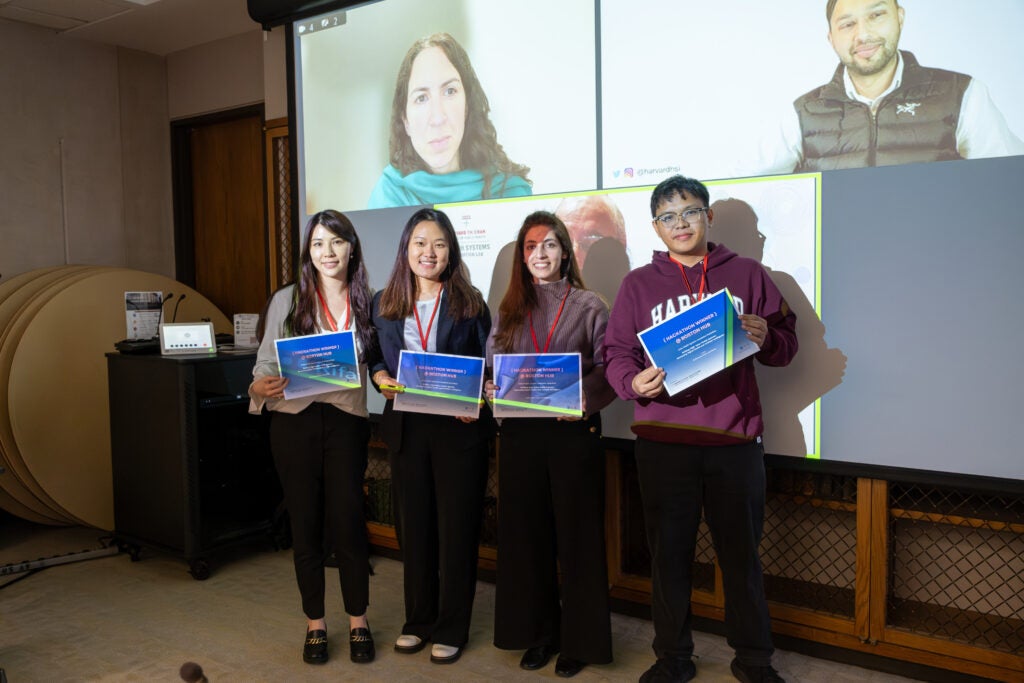Health Systems Innovation Lab
The Health Systems Innovation Lab is a global research and training lab that specializes in health system performance, health policy, and venture creation.
677 Huntington Ave,
Boston, MA 02115
Building 1, 11th floor
Our Work
What We Do
We are a diverse and interdisciplinary team passionate about health systems and innovation. Our team includes data scientists, clinicians, epidemiologists, public health experts, policy makers and economists.

We Research
Ongoing Research Projects
The Health Systems Innovation Lab launched the Global Collaborative on Health Systems Performance (GC-HSP, formally the Data Collaborative on Health Systems Performance), to harness unexplored data to assess health system performance, to generate new evidence to inform the development of new policies, practice and innovations.
The Global Collaborative for Changing Diabetes in Children (GC-CDiC) is an initiative led by the Health Systems Innovation Lab at Harvard University, with sponsorship from Novo Nordisk. This project aims to significantly advance the understanding and management of Type 1 Diabetes (T1D) in children and adolescents across various countries. By establishing a virtual cohort and implementing a comprehensive cohort study, the GC-CDiC seeks to generate new insights into the etiology, pathogenesis, and optimal management of T1D, while also identifying effective health system adaptations and innovations to improve patient outcomes on a large scale.
Lancet Oncology Commission on Cancer in the Commonwealth is an initiative aimed at enhancing cancer care across Commonwealth countries. This project is driven by a commitment to address the multifaceted challenges of cancer care through comprehensive and collaborative efforts.
The report highlights G20+ nations’ challenges with rising healthcare costs and disparities. Their goal is efficient, equitable, and effective healthcare. Despite efforts, no major population-level impact is seen. Harvard’s HSIL introduces a 10-component High-Value Health System Model. While countries have adopted parts of this model, none have fully realized it.
The “Global Health Policy Lab” (GHPL) is a collaboration between Harvard Health Systems Innovation Lab and the Charité Center for Global Health. Aiming to bolster global health via digital tools, it seeks to digitalize health laws and policies, aligning with WHO’s Digital Health Strategy. By bridging science and policy, GHPL, backed by the Virchow Foundation and partnered with the World Health Summit, targets improved global health outcomes.
This program, led by the University of the Witwatersrand and Harvard T.H. Chan School of Public Health, aims to strengthen national regulatory authorities by enhancing the leadership and regulatory skills of national regulatory leaders.
About HSCI-LA
The Health Systems and Cancer Initiative in Latin America (HSCI-LA) project is a multi-country collaboration involving Argentina, Chile, Colombia, and Brazil. The aim of the project is to analyze health system performance in managing cancer and to help improve the response of countries to the rising burden of cancer. The HSCI-LA Learning Network provides a platform for health professionals, researchers, policymakers, civil society, and innovators for joint learning, experience sharing, design, and innovation to catalyze the development of high-value health systems to address cancer in Latin America.
Reports
The first country-level study reports, ‘Addressing the rising burden of cancer: Challenges & opportunities’ for Argentina, Brazil, Chile, and Colombia, are available on the Union for International Cancer Control (UICC)’s website. Click here to access.
Previous Research Projects
Strategic Public Private Partnerships are highly targeted collaborative partnerships purposefully designed to create value in health systems for patients, communities, economies, and society at large. Strategic PPPs are long-term relationships, based on the principles of trust, integrity and interdependence, and are critical to manage major health threats such as cardiovascular disease and can help diffuse transformative innovations independent of health system maturity or GDP per capita.
The Health Systems Innovation Lab has led several seminal studies that focus on innovative financing and uses the evidence generated to engage organizations, governments, and ventures to develop sustainable financing mechanism to enable the delivery of more effective, efficient, and responsive health services in major priority areas, including among others, surgery, cardiovascular disease, cancer, and HIV/AIDS, and Malaria.
DHS collab brings together an international, multidisciplinary team of academic, clinical, enterprise, and policy stakeholders in both the public and private sectors. The DHS collab seeks to generate evidence for and promote value-based digital transformations for health care for better patient health outcomes at the population level.
The Global Health and Population Project on Access to Care for Cardiometabolic Diseases (HPACC) is an international consortium aimed at addressing cardiometabolic disease concerns globally. It collects and harmonizes data, especially from low- and middle-income countries, aiming to fill research gaps and become a leading center for data sharing and analysis.

We Teach
With a focus on learning and translation, the lab draws on its research and policy engagement in comparative health systems to promote learning among students and healthcare leaders in health systems innovation. We develop curricular content for graduate-level training at Harvard and executive education for healthcare leaders to support health policy and practice at the global level.
Explore the multiple education and training areas in which we work:
We offer graduate-level courses for students at Harvard, MIT, and Harvard teaching hospitals. We lead the courses “Fundamentals of Global Health” and Innovation and Global Health Systems” at the Harvard T.H. Chan School of Public Health.
Courses include:
- GHP 557
- ID 552
- MPH 102
The lab develops specialized courses for healthcare managers, executives and emerging leaders to create high-value health systems and enhance performance for healthcare organizations and clinical departments. Placing importance on pedagogy to deliver durable learning to practitioners, the lab identifies and develops health systems case studies to enable in-depth engagement with core theory, applied principles and create a discursive classroom environment. We currently have several executive education offerings through the Harvard T.H. Chan School of Public Health’s Centre for Executive and Continuing Education, including a 5-6 month Global Public Health Leadership Program, a Health Leadership Development Program for the Gulf Health Council, High Value Surgical Systems Course, High Value Health Systems Course, and a one-day immersion course on Creating a Data-Driven High Value Health System.
We developed a Health Systems Innovation Research Scholars Program for mid-level researchers (graduate level) and clinical residents (in all disciplines) to develop leadership competency in developing and translating recent evidence into policy and practice at the global level. Research Scholars function as core members within the lab and are immersed in a hybrid program of research, teaching, innovation and administration activities within the lab and with our collaborative partner network.
We have developed an internship program for undergraduate students that is centered around the student to provide highly motivated individuals with structured mentorship and individualized internships. Interns will function as student research assistants within the lab and will graduate from the program with a specific output that will assist them in achieving their professional objectives. The experience provides a safe and flexible platform for students to understand better and refine their career purpose, ambitions and long-term goals – alongside other students from around the world dealing with similar questions, from varied settings and diverse experiences. While most of our students tend to be medical, public health, engineering, and economics students, all students are encouraged to apply.
Training at the Health Systems Innovation Lab includes:
- Harvard Practicum
- HSIL Scholars
- HSIL Interns

We Innovate
HSIL Annual Hackathon:
What are Hackathons?
Every year we organize a Hackathon together with our partners. In 2025, the Health Systems Innovation Lab (HSIL) Hackathon featured 100+ teams across 19 hubs around the world, making it the largest hackathon to date. These are transformative events with a clear mission: to empower innovators to create solutions that enhance healthcare systems globally.
By fostering an environment that encourages unconventional thinking and practical implementation, it serves as a catalyst for positive change in healthcare delivery. Participants are driven to develop groundbreaking solutions that can revolutionize healthcare, bridging the gap between theory and practice. The impact of these innovations extends beyond the hackathon, potentially leading to improvements in patient care, operational efficiency, and the overall adaptability of healthcare systems.
Previous Hackathons
2021
- “Hackathon Asia: Type 1 Diabetes – Global Collaborative for Changing Diabetes in Children”
2022
- “Hackathon Africa: Digital Solutions to Transform Diabetes Health Care in Africa”
- “Africa Health Conference: Building Resilience and the Future of Health in Africa”
2023
- “Hackathon Latin America: Digital Solutions for building High-Value Health Systems”
2024
- “Building High-Value Health Systems: Harnessing Digital Health and Artificial Intelligence”
2025
- “Building High-Value Health Systems: Leveraging Artificial Intelligence”